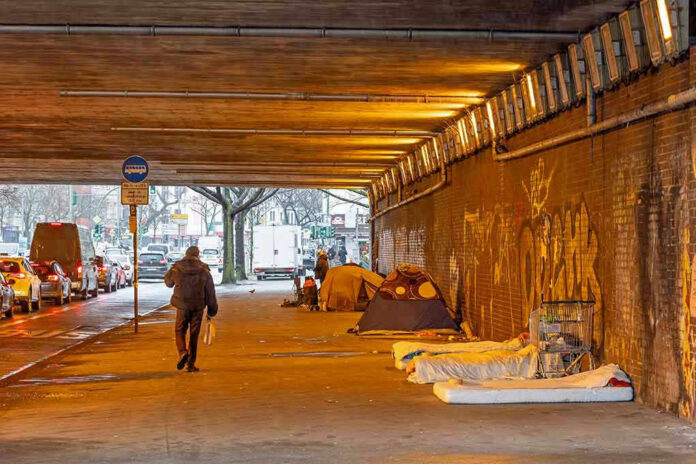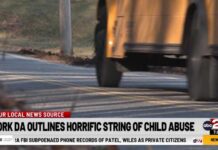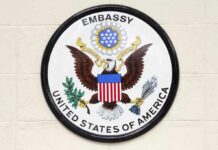When a city bulldozer tragically crushed a homeless man asleep in his tent, it set off a legal and moral battle that could reshape city policies nationwide.
At a Glance
- A homeless man, Cornelius Taylor, was killed by a bulldozer during a city-led encampment sweep.
- The sweep was allegedly rushed to clear space for upcoming festivities.
- Taylor’s family has filed a wrongful death lawsuit against the city of Atlanta.
- The case highlights systemic issues in how cities manage homeless encampment clearances.
Tragic Death Sparks Legal Battle
Cornelius Taylor’s untimely death has become a rallying point for advocates and family members demanding accountability from the city of Atlanta. On January 16, 2025, during a city-led sweep of a homeless encampment in Atlanta’s Old Fourth Ward, a public works bulldozer fatally struck Taylor while he was asleep. The sweep reportedly aimed to clear the area ahead of Martin Luther King Jr. Day festivities. It was an incident that not only ended a life but also brought to light the dangers of such rushed and poorly managed operations.
On July 18, 2025, Taylor’s family filed a wrongful death lawsuit in Fulton County Superior Court. The lawsuit accuses the city, the unidentified bulldozer operator, and other city staff of reckless and unsafe encampment clearing protocols. They are seeking unspecified damages and demanding broader policy changes to prevent such tragedies in the future. The family’s attorney, Harold Spence, emphasized that a simple safety check could have saved Taylor’s life, stating, “If someone had just looked inside [the tent] — had taken 10 seconds to do so — this tragedy could have been avoided.”
City Under Scrutiny
The lawsuit has put a spotlight on Atlanta’s approach to managing homelessness. The use of heavy machinery in clearing encampments has been criticized by homelessness advocates as inherently risky and often unnecessary. The city’s previous actions, justified under the guise of public safety and sanitation, are now being scrutinized for their potential to cause harm rather than mitigate it.
Homeless advocacy groups argue for more humane and effective methods, such as investing in housing-first solutions, which focus on providing permanent housing rather than temporary fixes. These advocates highlight that the current approach only exacerbates the problem, pushing unhoused individuals into less safe areas without addressing the root causes of homelessness.
Lawsuit Could Set Nationwide Precedent
The outcome of this lawsuit could have implications far beyond Atlanta. If successful, it may set a legal precedent that forces municipalities nationwide to reconsider their encampment clearance strategies. Legal experts note that wrongful death suits can drive policy change, especially when they bring systemic failures to light. This case could prompt cities across the country to adopt safer, more humane practices.
The tragic events in Atlanta serve as a stark reminder of the need for comprehensive, thoughtful approaches to homelessness. The lawsuit seeks not just justice for Taylor but also a reformation of the policies that led to his death. As the case unfolds, attention will be on how the city responds and whether it takes steps to prevent future tragedies.
Potential Impact on Policy
In the short term, this lawsuit has already heightened scrutiny on Atlanta’s public works practices and encampment clearing protocols. The city faces both legal and reputational risks, with the potential for policy reforms looming on the horizon. For the unhoused individuals of Atlanta, this case could lead to improved safety measures during city sweeps, reducing the risks they face.
Long-term, the lawsuit may catalyze broader changes in how cities across the country address homelessness. It underscores the importance of proactive investment in homeless services and housing-first approaches, shifting focus from punitive measures to sustainable solutions. For Taylor’s family, the lawsuit is a quest for justice, but for the broader community, it represents a call to action—a demand for change in how society treats its most vulnerable members.











